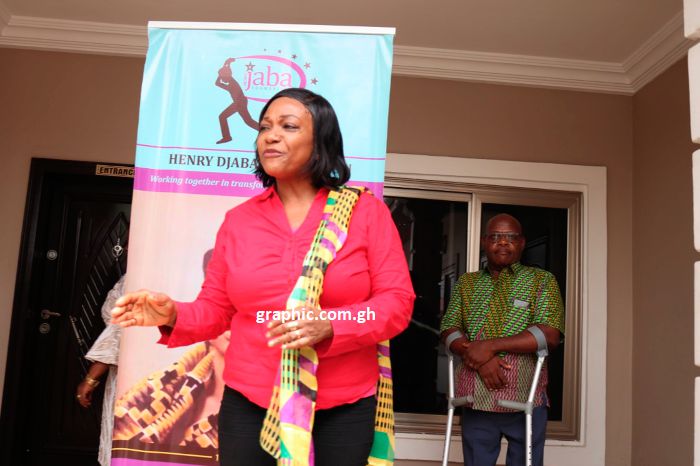
Appoint defeated women and PWDs into assemblies
The Henry Djaba Memorial Foundation has appealed to the President to consider appointing the women and persons with disability (PWDs) who lost in the 2019 district assembly and unit committee elections as government appointees.
It has also recommended that when appointing people into the assemblies as demanded by law, “the 30 per cent non-elected persons by the President, in consultation with traditional authorities and other interest groups, should be allocated to only women (20 per cent) and PWDs (10 per cent).
Advertisement
The Executive Director of the foundation, Ms Otiko Afisah Djaba, made the appeal at a press conference in Accra last Thursday as part of an advocacy for the President to allocate all 30 per cent appointees into the Metropolitan, Municipal and District Assemblies (MMDAs) to only women and PWDs.
She explained that without a concious effort by the government to shore up the representation of the vulnerable in decision-making processes of the country, such persons would always be under-represented.
She said although the Electoral Commission was yet to come out with actual figures, only "a little over 200 women and a few persons with disability” out of the 909 who contested won in the just-ended elections.
Recommendations
“Comparing all the targets and our performance over the years, it seems we may not be able to meet the Sustainable Development Goal target on gender equality if we focus on only elections,” Ms Djaba stated.
Ms Djaba, who is a former Minister of Gender, Children and Social Protection, therefore, requested that “when making appointments into the district assemblies as by law established, 30 per cent of the assembly members should be appointed by the President in consultation with traditional leaders”.
She also recommended that “the Ministry of Local Government and Rural Development issue a directive to all district assemblies to ensure that lists of persons eligible for appointment into district assemblies have equal number (parity) for men and women and persons with disability”.
She said “towards better representation of women in politics and decision-making positions in 2020 and beyond, the government should redeem its promise of passing the Affirmative Action Bill”, adding that “passing the Affirmative Action Bill before the end of the first quarter of 2020, which is by the end of March 2020, will be great news”.
The facts
The district and local government elections were conducted on December 17, 2019. The election was a process to elect 70 per cent of assembly members in all the 260 districts in the country.
However, according to the foundation, women faced a lot of challenges in their efforts to participate and represent in the political leadership of the country.
Ms Djaba said for PWDs, the challenges they faced were immeasurable, saying the ridicule, disrespect and non-recognition of their ability and capacity to take part in decision making was a worrying concern.
“The stereotyping, the patriarchal society and the negative name tagging affect women and persons with disability most in their desire to participate and represent in political and public leadership,” she added.
Those challenges, she said, were further compounded by unequal distribution of power and resources and cultural and traditional issues, stating that based on those and many other reasons, “women and PWDs have very limited presence in our public and political leadership”.
According to Ms Djaba, the participation and representation of women and PWDs in public and political leadership were very relevant to Ghana’s democratic dispensation and national development.
Writer’s [email protected]




